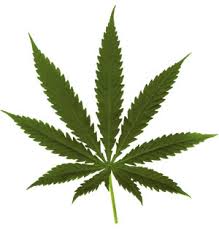Since the passage of Washington’s pot-legalizing I-502 last fall, the searing debate over how broad legalization and regulation would affect the state’s medical cannabis users largely fell away as residents here grappled with the more immediate implications of the new law.
But no longer. With last week’s announcement that the Department of Justice would not challenge I-502 as long as strict regulations were laid forth on the use and distribution of marijuana, officials foreshadowed what’s sure to be a knock-out-drag-out fight over medical marijuana policy in the upcoming legislative session, if not sooner.
The question is this: Does the state want – and will the federal government allow – two separate avenues for legal marijuana to exist in Washington, each with its own set of rules, or was Thursday’s announcement a signal that the Department of Justice wants I-502 to become the law of weed-land. It’s a scenario that has been floated since I-502 first made it onto the ballot, but U.S. District Attorney Jenny Durkan seemed to feed into the paranoia Thursday with a brief statement on the Department of Justice statement: “The continued operation and proliferation of unregulated, for-profit entities outside of the state’s regulatory and licensing scheme is not tenable and violates both state and federal law.”
Nobody had to ask what “entities” she was talking about, nor which “regulatory and licensing scheme.”
“She made it pretty clear that there’s no protection for medical marijuana,” said Keri Boiter, the head of a campaigned called Health Before Happy Hour that is lobbying the state to not impair medical cannabis while crafting regulations for recreational use. “I don’t know if it’s pressure for her superiors or if she said, look, it’s easier to work with 502, but it’s not a workable system for patients.”
Most agree that Washington’s medical marijuana industry is in need of tighter regulations, as Gov. Jay Inslee noted during a press conference following the Department of Justice announcement.
“Even independent of today’s discussion, we believe there are serious changes that need to be brought to bear on medical marijuana for a variety of reasons,” he said. “That probably even predated the voter initiative. There’s some work to be done with medical marijuana.”
But medical marijuana advocates contend that I-502 regulations are – to borrow a phrase from Durkan – “untenable” for medical cannabis users, including the ban on use for those under the age of 21 and concentrates like tinctures that help people consume higher doses of the drug.
“The reaction the governor and Jenny Durkan are having to this is saying we have to prop up” I-502, said Doug Hiatt, a local lawyer who opposed I-502 (as did Boiter).
The governor’s office says it isn’t even close to committing to a course of action.
As part of this year’s state budget, the Liquor Control Board was directed to study how, or if, I-502 and Washington’s medical marijuana law could co-exist; that study is just beginning, said John Lane, Inslee’s senior policy adviser on public safety, and it’s too soon to say what the administration would support.
“Yesterday’s announcement was just a reminder there’s a need to put regulations around the medical marijuana market,” he said.
Still, uneasiness runs deep, as exhibited by a visit paid to a medical marijuana access point by a Liquor Control Board employee on Friday, who said she wanted to learn more about how the operations work. To the business-owners, it felt like intimidation, and they cried foul (the Stranger has the full report). Within a day, the control board had apologized.
“I’m a little embarrassed,” Liquor Control Board Director Rick Garza told the Stranger. “It plays into the paranoia some people have.”








